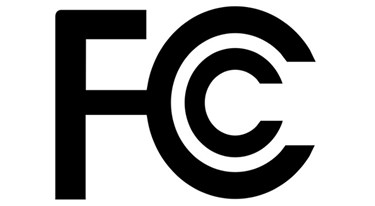Hotels Press FCC To Allow Them To Block Personal Hotspots And Google Fights Back

By Christine Kern, contributing writer

As hotel lobby asks to control Wi-Fi in rooms, Google and Microsoft join in the opposition.
Earlier this fall, Marriott was forced to change its behaviors in order to bounce back after the negative press they garnered when they jammed customer Wi-Fi hotspots to force them to use the hotel’s fee-based service, for which they were slapped with a $600,000 fine by the FCC. But now, has asked the FCC for the right to block personal hotspots, and the campaign has Google and Microsoft ready to fight back.
In August, Marriott, Ryman Hospitality Properties, and the American Hotel and Lodging Association asked for clarification from the FCC regarding when hotels are permitted to block outside Wi-Fi hotspot signals in order to protect the integrity of their own internal services, according to PC World.
In that petition, the hotel group asked the agency to “declare that the operator of a Wi-Fi network does not violate [U.S. law] by using FCC-authorized equipment to monitor and mitigate threats to the security and reliability of its network,” even when taking action causes interference to mobile devices. In other words, the hotels are asking for permission to block personal hotspots, forcing users to connect via the hotels’ systems.
The American Hotel & Lodging Association, Marriott International, Inc., and Ryman Hospitality Properties submitted a public comment on Marriott’s behalf, saying that the hotel was merely exercising "reasonable network management practices.”
The association pointed out that the tools it used to block guests’ Wi-Fi signals were FCC-approved, stating: "Although the capabilities of such equipment vary, they generally include the ability to monitor and mitigate unauthorized access points that pose a threat to the security or reliability of the network. The use of such equipment for these purposes should be encouraged, not prohibited. Indeed, as explained below, guidelines developed by the credit card industry require that providers utilize monitoring and mitigation technologies to ensure a safe environment in which to process credit card transactions.”
The petition had a comment period, which recently ended. Now the FCC must rule on Marriott’s petition.
Marriott was fined $600,000 in October for blocking personal Wi-Fi hotspots, after customer complaints, which alleged that employees of Marriott’s Gaylord Opryland Hotel and Convention Center in Nashville used signal-blocking features of a Wi-Fi monitoring system to prevent customers from connecting to the Internet through their personal Wi-Fi hotspots. The hotel subsequently charged customers and exhibitors $250 to $1,000 per device to access Marriott’s Wi-Fi network.
According to KADN News, Marriott and the hotel lobby argued that guests can utilize smartphones or other devices to launch an attack against the hotel’s Wi-Fi network or could access other guests’ information, and that such gadgets can clog the hotel’s Wi-Fi and slow down speeds for other users.
“If hotel is powerless to address such activities to ensure the security and reliability of its Wi-Fi network on its premises, both the hotel and its guests would suffer,” the Marriott filing read.
“If a customer arrives at a hotel with her own Mi-Fi device and the hotel interferes with the customer’s connection to that personal hotspot, the hotel can effectively force the customer to purchase the hotel’s Wi-Fi services to gain access, even though the customer has already paid her mobile operator for personal hotspot capability,” Microsoft wrote in an FCC filing, opposing Marriott’s request.
Google took a similar position in its filing, where the search giant said blocking access to personal Wi-Fi hotspots "would undermine the public interest."
